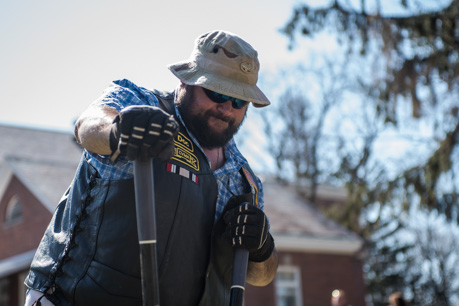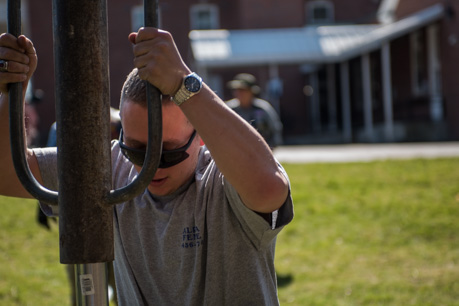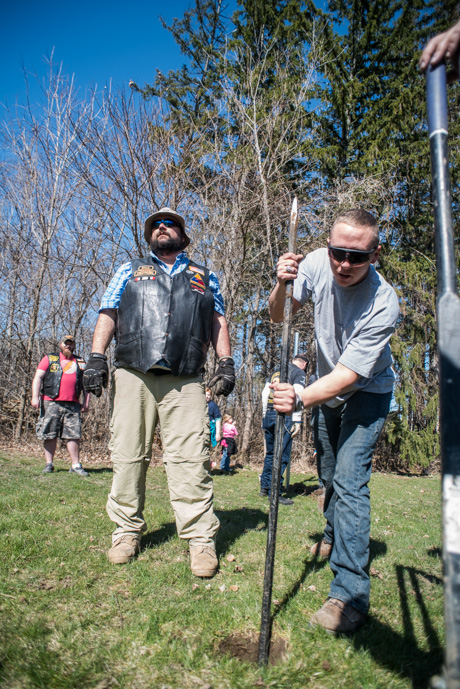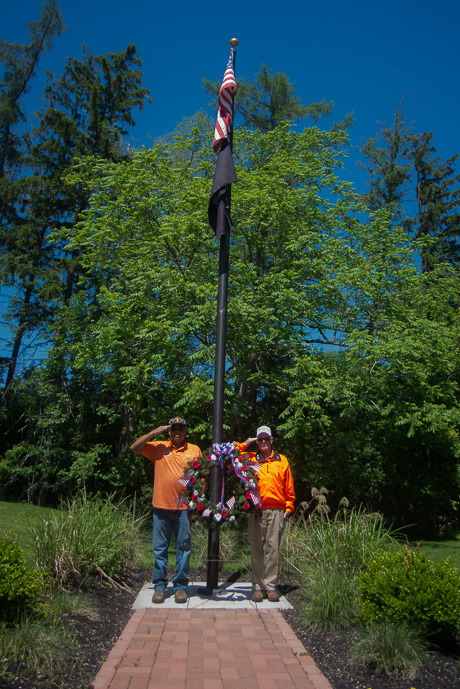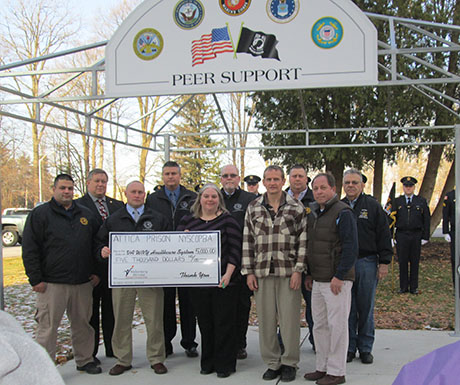The death of James Maher in Batavia on Nov. 7 brought the wars in Iraq and Afghanistan a little bit closer to home for many of us.
Here was a young man -- Maher was 27 -- who served his country with distinction, but was battling demons that apparently lead him to drink heavily and had friends fearing on that crisp Saturday night that James was out somewhere with thoughts of self destruction swimming through his mind.
Maher came to Batavia looking for help. He was one of more than 150,000 returning Iraq and Afghan war veterans who have reported to a clinic seeking help and answers for PTSD (about another 150,000 vets are estimated to suffer from PTSD, but have not sought help).
In the past year, the Jack H. Hisby, Jr. PTSD Center at the VA Hospital in Batavia has treated 557 men and 84 women in its residential clinic. Another 450 veterans are currently in out-patient treatment, according to Dr. Terri Julian, who runs the clinic.
"These patients are our sons our daughters and our bothers and our sisters and our fathers and our mothers and our aunts and our uncles," Julian said when I spoke with her at the clinic last week. "The fact that they come for treatment, we should be honoring them and patting them on the back for doing that. It’s a hard thing to do."
Until the late 1970s, when the term was coined, PTSD (Post-Traumatic Stress Disorder) was largely characterized as "battle fatigue" or "shell shock." It wasn't until Vietnam-era veterans made an issue about what they and their colleagues were experiencing, that PTSD became recognized as a treatable clinical condition.
Nearly 30 years later, two ongoing wars are taking a high toll on active duty soldiers and returning veterans according to recent media reports.
Military leaders acknowledge rampant psychiatric problems in their midst. According to the Army, the suicide rate among soldiers in Iraq is five times that seen in the Persian Gulf War and 11% higher than during Vietnam. The Army reported 133 suicides in 2008, the most ever. In January of this year, the 24 suicides reported by the Army outnumbered U.S. combat-related deaths in Iraq and Afghanistan.
The Marine Corps also reported an increase in suicides in 2008, to 41. The Army and Marine Corps have provided most of the troops in the two wars.
After the tragedy at Fort Hood on Nov. 5, PTSD emerged again as a topic of national discussion, with some speculation that Maj. Nidal Malik Hasan was suffering a form of PTSD stemming from his treatment of returning Iraq and Afghanistan veterans. There is some evidence that doctors who treat patients for PTSD can suffer "secondary trauma."
Regardless of the validity of any condition potentially suffered by Maj. Hasan, the difficulties returning veterans face has largely been ignored by the media.
The Veterans Administration, however, seems to have taken steps to deal with the psychiatric issues of returning veterans and their families.
According to Julian, the VA prepared for an increase of PTSD patients. In Batavia, for example, the residential clinic expanded in 2007 from 16 to 30 beds.
The VA also created a Web site to help families understand the difficult transition many returning vets face.
"Anybody coming back from a war zone is going to have some readjustment needs," Julian said.
The four-week residential treatment at the Batavia clinic is hard and challenging, according to veterans I met at a memorial for Maher on Veteran's Day.
Julian says, yes, in fact, treatment can be hard.
"Of course we don’t like to confront our pain because it hurts," Julian said, "but that’s exactly what we know helps.
"These are folks who go through some pretty awful stuff," Julian added. "They’re survivors and pretty courageous people. The fact that they can talk about how tough it is, we applaud that. We want them to talk about what's tough, about the work."
The treatment involves psychotherapy, group discussions, family meetings, medication, and fitness regimes.
Patients are also taught techniques to help them re-learn how to control anxiety.
There are also opportunities for patients to explore artistic abilities in pictures or music. An area fly-fishing group also offers fly-fishing classes.
“It’s all of the kinds of things that we know work from the research," Julian said.
The doctor is confident that the program is helping the vast majority of men and women who seek treatment.
"I can tell you, moving-on day," Julian said, "which is what we call our graduation, there is a difference in those men and women who come in feeling disconnected from one another. I think one of the tough things that treatment does is, it lets you connect with your own heart and with other people again. That’s pretty scary after you’ve had losses due to war. When you let yourself do that, you remember what it’s like to feel again."
The clinic treats more than just Iraq and Afghanistan veterans (about 30 percent of the PTSD patients are from those two conflicts). There are also still a number of Vietnam vets who seek treatment for the first time (either they reach retirement and have more time to think or the current wars conjure up suppressed memories), and there are still Gulf War veterans who seek treatment.
She said after 9-11, their was a sharp increase of Korean War vets seeking treatment.
"One last thing I want to say," Julian added near the end of our interview. "It really is a privilege to be here every day and an honor to serve those who served us. I say that on behalf of our entire staff."

